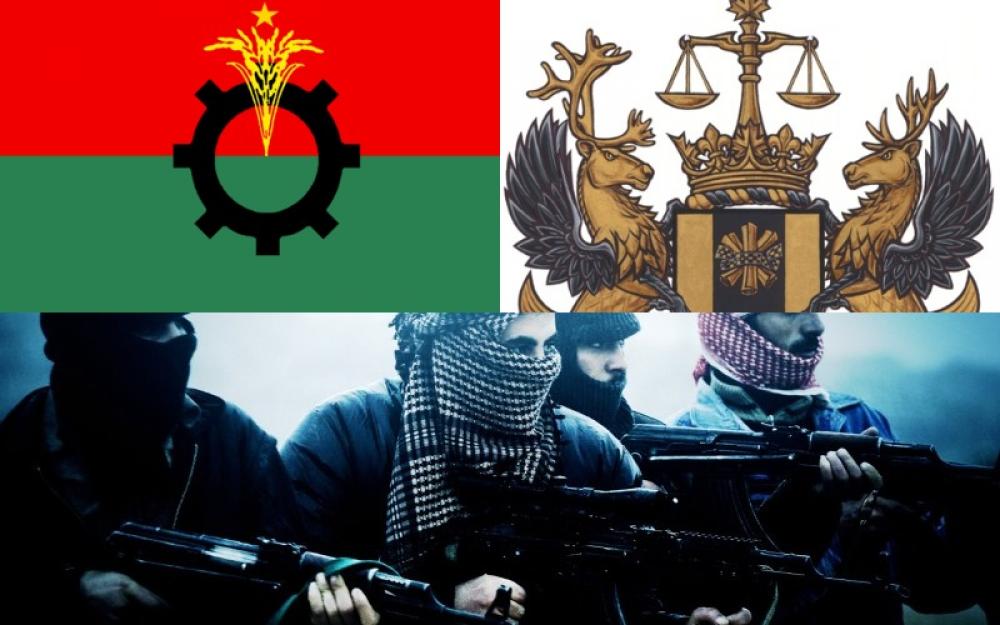Just Earth News | @justearthnews | 11 Sep 2017
#BNP #CanadaFederalCourt #TerrorOrganisation #BRICSTerrorCondemnation #HBL #HabibBank #PakistanTerrorist #BangladeshTerrorist

In the neighbouring Canada, the Canadian Federal Court, in two separate cases involving judicial review applications of Bangladeshi nationals who were members of the country’s opposition Bangladesh Nationalist Party (BNP), refused to grant the status of ‘permanent residence as a protected person’ to the applicants.
The Court ruled, in both cases, that the judicial review application was being dismissed on grounds that the applicants were members of the BNP, which were reasonable grounds to believe they were engaged or will engage in “acts of terrorism”.
The first ruling was given in the case Gazi vs Canada (Citizenship and Immigration) , in which the applicant was Mohammad Jewel Hossain Gazi, an activist of the BNP’s volunteer front, the Swechchha Sebak Dal.
In this case, Federal Court Judge Justice Henry S Brown upheld on Jan 25, 2017, the immigration official’s previous assessment that there were reasonable grounds to believe that the BNP, based on its activities, was a terrorist organisation, as defined under Canadian law.
Judge Brown concluded that the BNP wilfully engaged in terrorism and violence to further its objectives in Bangladesh. Mohammad Jewel Hossain Gazi had been granted asylum in Canada in 2014 and was now pushing for permanent residence status as a protected person.
In another case in May 2017, the Federal Court of Canada again labelled the BNP as a terrorist organisation , when Justice J Fothergill issued the verdict on an appeal of a BNP Joint Secretary and former Juba Dal member, who had filed a review petition for immigration to Canada.
The applicant used the pseudo name of ‘SA’ with a request that his name may not be disclosed.
In his verdict, Judge Fothergill said that he did not find any mistakes in the Immigration Division’s review as, according to Canadian laws, many of the activities of the BNP matched the definition of terror acts and that the party used arms and ammunition, hand bombs, big swords and other means of violence to meet their political objectives.
In the last two decades, the years that the BNP was in power, Bangladesh witnessed widespread Islamic radicalisation in the country.
BNP leaders have blatantly propped up terror groups, using them as proxies and allowing them a free run in the country.
The move, may not be unprecedented, but is a big step towards addressing terrorism and calling a spade by its true name.
In Asia, after pussyfooting with the issue of Pakistan sponsored terrorism, China finally gave its consent and along with Brazil, Russia,India and South Africa, issued a joined declaration in condemning the activities of Pakistan-based terrorist group.
It is a significant development in the continent, where China is regarded as a major player.
The declaration was made at the recently concluded BRICS summit and read, "We deplore all terrorist attacks worldwide, including attacks in BRICS countries, and condemn terrorism in all its forms and manifestations wherever committed and by whomsoever and stress that there can be no justification."
In the aftermath, Pakistan too for the first time in decades acknowledged giving shelter to designated terrorists.
While calling for tougher sanctions against these groups, Pakistan's Foreign Minister Khawaja Muhammad Asif told local Geo News, "We should impose restrictions on activities of elements like LeT and JeM so that we can show the global community that we've put our house in order."